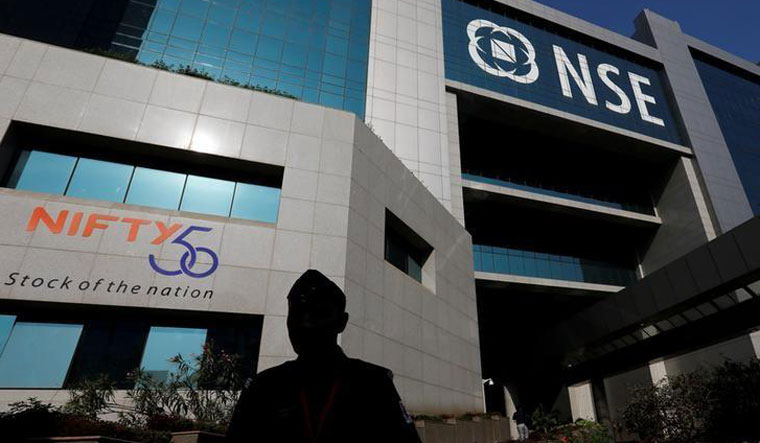Indian markets were on edge during the week on worries that US President Donald Trump’s import tariffs may trigger a trade war among the world’s leading economies. Trump's trade rhetoric had heightened risk aversion among global investors, leading them to cut bond investments in emerging economies like India, widening the yield spread between India and US government bonds.
In India, news related to the fraud at Punjab National Bank (PNB) and its fallout on corporate credit kept investors worried. The BJP’s historic win in elections in northeast India failed to cushion the fall. However, reports that North Korean leader Kim Jong Un and Trump have agreed to meet provided some relief to global markets in the short term.
The Nifty ended the week down 2.2 per cent at 10,226 after touching a low of 10,141. As expected, the mid-cap and small-cap indexes underperformed, falling by around 3 percent and 4 percent respectively. The rupee ended on a flat note at 65.16 per dollar. On the institutional activity front, FIIs were net sellers to the tune of Rs 2.8 billion, while DIIs were net buyers to the tune of Rs 1.3 billion.
On the global front, the European Central Bank moved closer to exiting its massive monetary stimulus, while leaving the key interest rates unchanged. The Bank of Japan maintained its deposit rate at -0.1 per cent.
Back home, the government pitched for a sovereign rating upgrade with Fitch, as it felt that economic fundamentals remain strong even as the government remains committed to maintaining fiscal discipline. Senior officials in the finance ministry have assured Fitch about the government's commitment to maintaining fiscal discipline and of achieving the fiscal deficit target of 3 percent of GDP by 2020-21. Analysts are expecting GST collections to improve on implementation of the e-way bill in April.
A parliament panel has called for a comprehensive probe in the PNB fraud case. During the week, senior officials from the private-sector ICICI Bank and Axis Bank were summoned to the Serious Fraud Investigation Office (SFIO). PNB’s MD & CEO Sunil Mehta was also summoned. This imbroglio has had a negative effect on corporate credit, especially for exporters as bankers have largely refrained from taking business decisions.
Metal stocks remained under pressure as Trump levied a 25 per cent tariff on steel and a 10 per cent tariff on aluminium imported from all countries except Canada and Mexico.
His goal is to incentivize US companies to buy steel and aluminium from US producers so the domestic metal industry gets stronger. India is a significant producer and consumer of both metals but exports to the United States are merely around 2 percent. Although levies on metals may not affect India, a full-blown global trade war will take a toll.
Tata Motors Ltd was also in the spotlight on fears that the US may impose a 20 percent tax on cars imported from the European Union. JLR exports about 20 percent of its cars to the US from the UK, and imposition of any tax would be negative, though the domestic HCV/LCV business is expected to see an upsurge as India focuses on infrastructure.
Telecom stocks, especially Idea Cellular, were in focus after the cabinet on Wednesday gave its approval to revise the limits for spectrum holding and restructuring of payment liabilities.
For the coming week, Indian markets are expected to react to the sharp upwards move in the US markets. The Dow climbed 450 points on job data out on Friday. The SGX Nifty is indicating a strong opening of 150 points higher on Monday.
As the week progresses, markets will track a slew of macro-economic data and the IPOs of Bandhan Bank and Bharat Dynamics that open in the coming week. Markets seem to have taken near-term support as the Nifty halted its recent decline. It remains to be seen if it holds in the medium term in the light of Trump’s tariffs.
GST Council members met on March 10 and announced the rollout of e-way bills from April. It also extended tax exemption to exporters for a further period of six months till October.
Macro data points expected this week are CPI for February on Monday, as also IIP data for January. WPI data for February will be released on Wednesday.
Markets will see heightened volatility as we move towards the end of the financial year. Investors should utilise the sharp falls to accumulate stocks. However, one shouldn’t shy away from booking profits whenever there is a short-term rally, especially the one we may see early next week.
–Reuters


